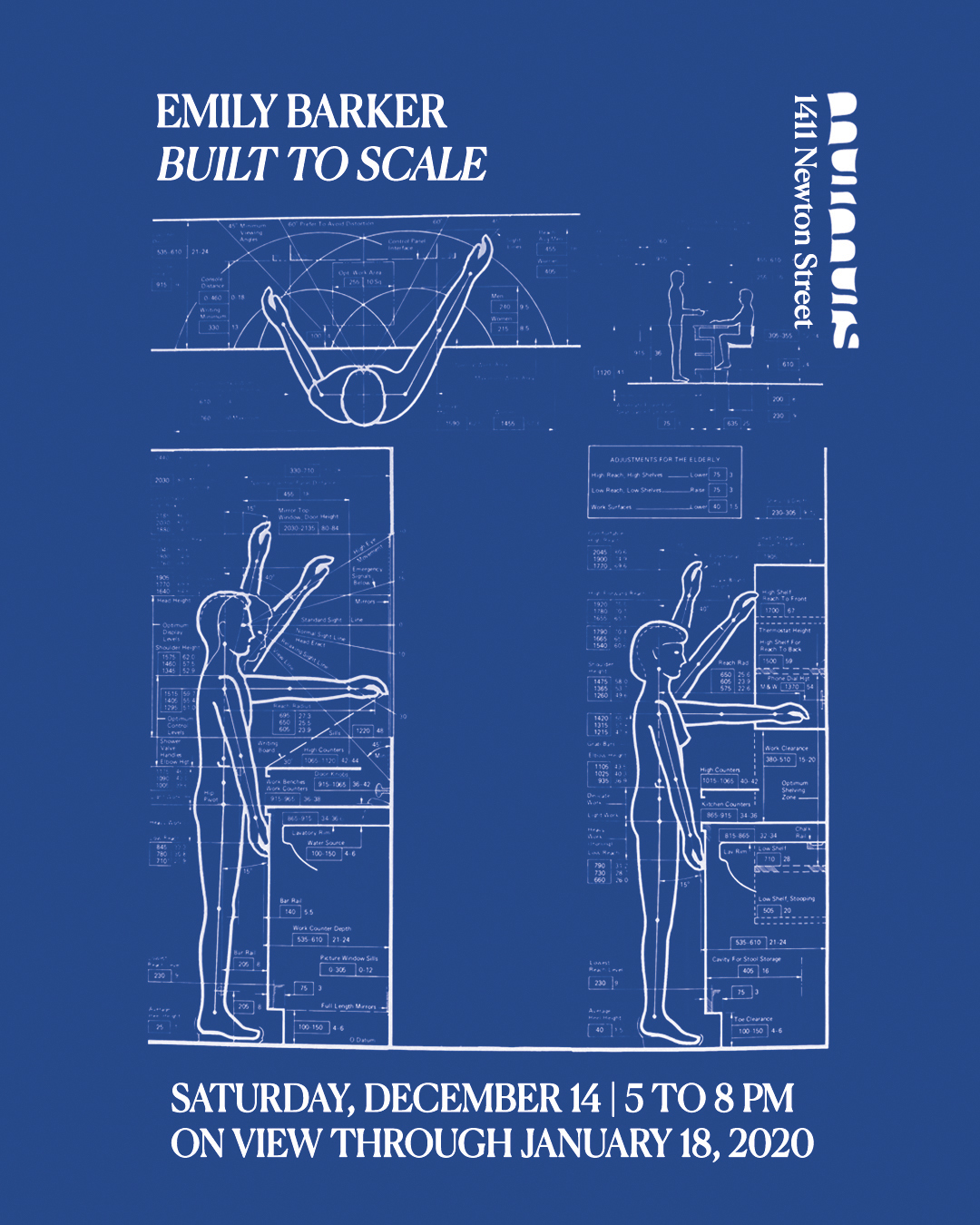Emily Barker: Built to Scale
December 14, 2019 — January 18, 2020 Opening Reception: Saturday, December 14 | 5-8pm
PRESS: AQNB | Archinect | Art Viewer | Autre | Cultured | FLAUNT | Hyperallergic | KCRW Art Insider | Medium | The Architect’s Newspaper
Imagine an obstacle. Imagine an obstacle created in the design of every object built into existence. Imagine a hierarchy of needs and yours never being met.
Murmurs is pleased to present, Built to Scale, Emily Barker’s first solo exhibition that explores the exclusionary principles that shape our built environments and how they influence our perception of “normalcy.” Barker’s large, translucent, almost-invisible sculptures, haunting wall-works and unnerving installations, challenge the socially constructed, invisible norms in architecture, objects, mass production and interior space. Standards physically perpetuate, embody and replicate the structural prejudices of society towards people considered “abnormal,” “divergent,” or “abject” and how society devalues them. Those who deviate from the norms have little space built to include them and can’t participate in most built environments.
Barker asks how standardized values of scale determine social interactions because these values cannot be applied to every body type. This in turn shapes our judgement of each other. Accommodating capitalism and industrialization causes a pressure for high “functionality” creating the necessity of standardized space, we then see the encouragement for repetition of limited accessibility because of these standards. Nearly every public and private space is built without consideration of non-normative bodies. Willfully devoid of considering the presence of a body that ages, a parent, disabled or otherwise invisible. Disability is a built social construct and normality should not be applied to living things that are constantly changing- as truth will always be stranger than fiction and no body will not stay in the narrow confinement of normativity forever.
Entering the gallery you are faced with a formidable rug, made from clear plastic tubing and copper wire. Scale, materials and texture are recontextualized in Barker’s work, highlighting how much about the disabled experience is an afterthought in our “modern” “hyper-convenient” world. Rugs, sand, dirt, grass become insurmountable obstacles for people with mobility devices.
The revelation one inevitably comes to in the experience of Barker’s work is jarring; leeching power from the viewer in a way that is reminiscent of a “slow death by 1,000 cuts” that is the day-to-day reality of life under an inaccessible system. We live in a world where labor is a commodity, health is a fantasy, and cures, often available only for the very wealthy, exist only to return a person to work. The most sobering example that Barker provides is a fluorescent-lit, bright, small room–filled with documents demonstrating the sheer volume of bureaucratic labor required to meet your basic needs after experiencing unthinkable trauma. How to survive when your body has been judged as non-normative, an existence as an invisible other. Barker presents the viewer with bills which demonstrate the value of their life in terms of dollars, some totaling upwards of $600,000.
A ramp vacuumed formed with anti-slip grip that’s too steep to use, a robotic arm frozen in time which is a symbolic representation of an arm made disabled by a broken rotator cuff, the replacement of which is a standard surgery for those using manual wheelchairs. Massive translucent plastic kitchen cabinets flank a kitchen island just barely towering over the viewer and creating a window into life ruled by a perspective that is disadvantaged, reminiscent of childhood, of living in a world that is not built for you. A tiny violet butterfly night light, symbolic of a small yet dim sense of hope. You finally begin to recognize the creeping sound of Opus Number One the most common wait tone and the dial by department directory, an immersive sound installation showcasing the reality of constant gate-keeping bureaucracy one faces if othered.
Barker posits that this structural violence is allowed to continue because people do not yet realize that being “able bodied” is a temporary privilege. They do not yet realize the structural problems exist because the accelerated march towards standardization, efficiency and the survival of capitalism is dependent on these issues remaining invisible. They don’t realize that, as theorist Lennard Davis puts it, “the hegemony of normalcy is, like other hegemonic practices, so effective because of its invisibility.”
Special thank you to Tomasz Jan Groza, Barker’s collaborator and designer, who helped realize Built to Scale.
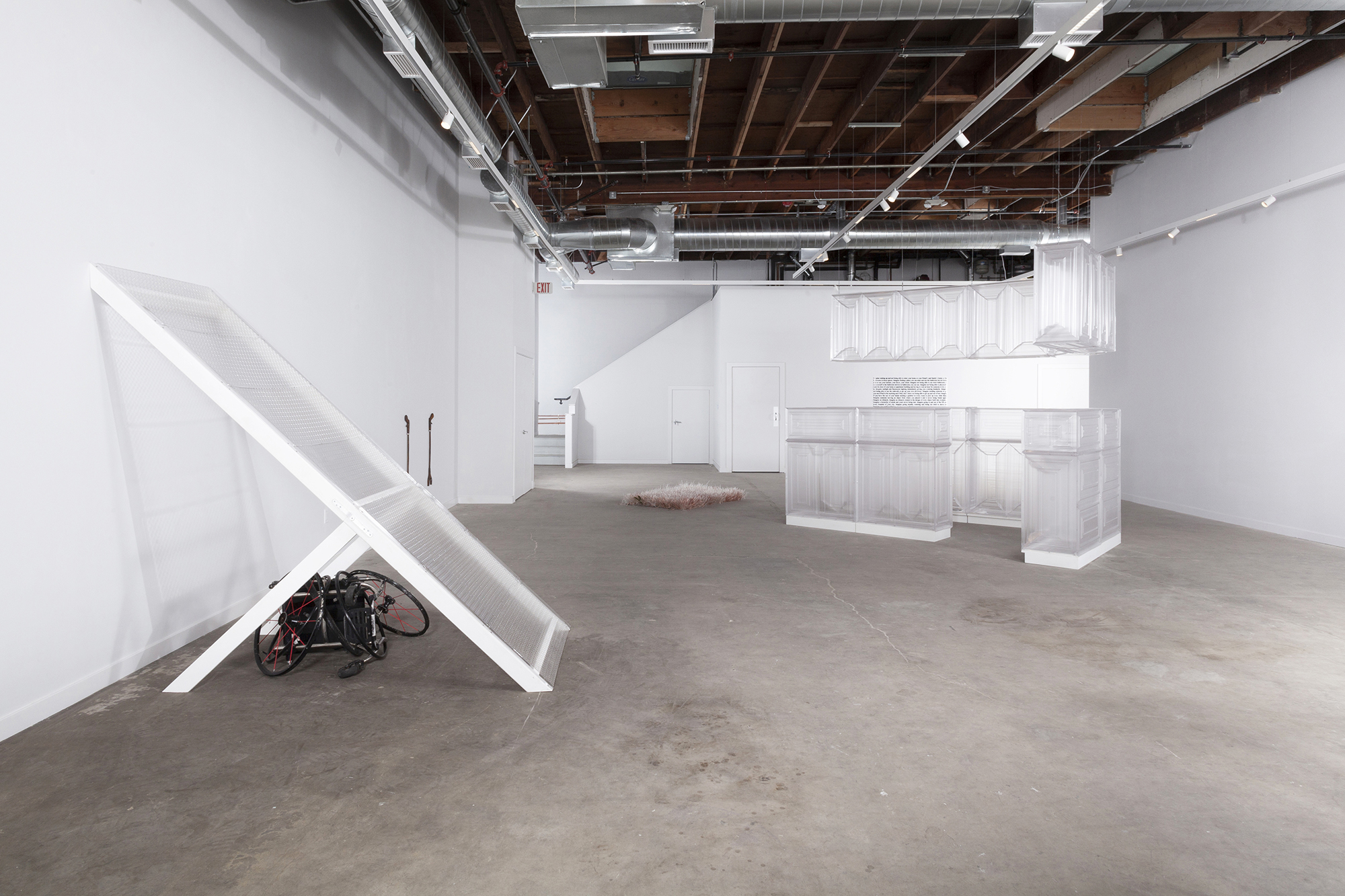 Installation view
Installation view
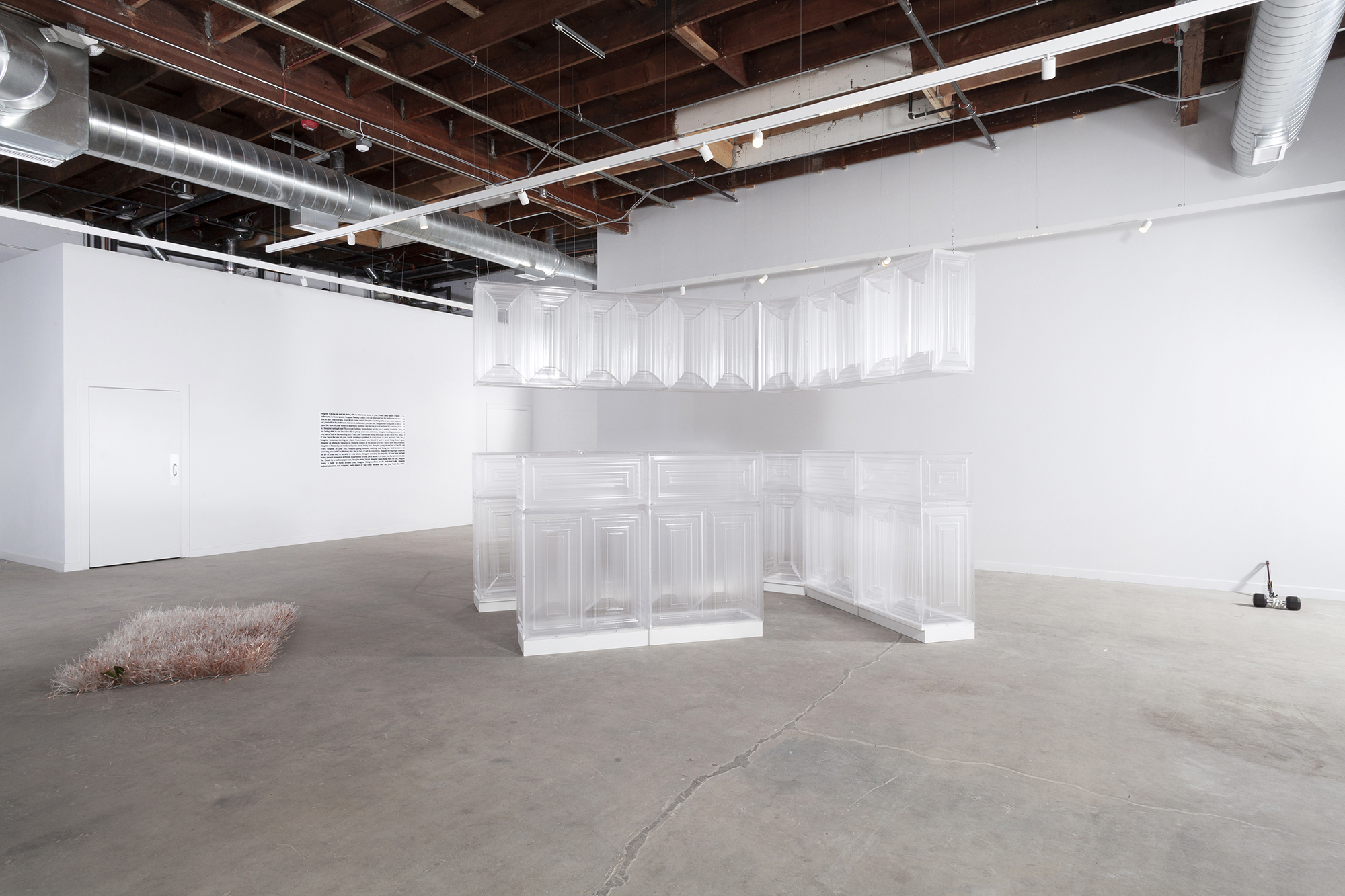
Installation view

Installation view
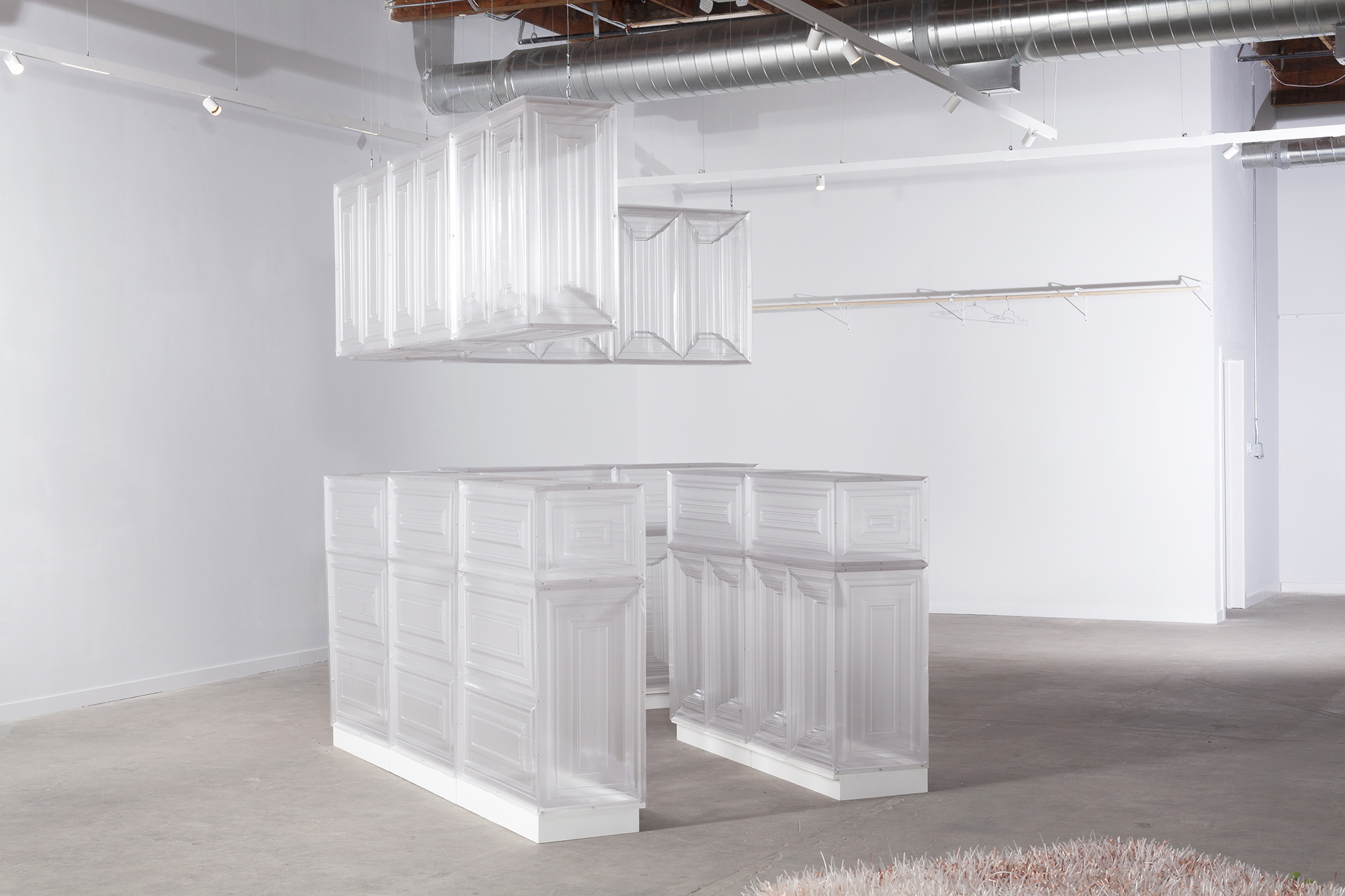 Untitled (Kitchen), 2019.
Untitled (Kitchen), 2019.Thermoformed PETG plastic cabinets, rivets, wooden base.
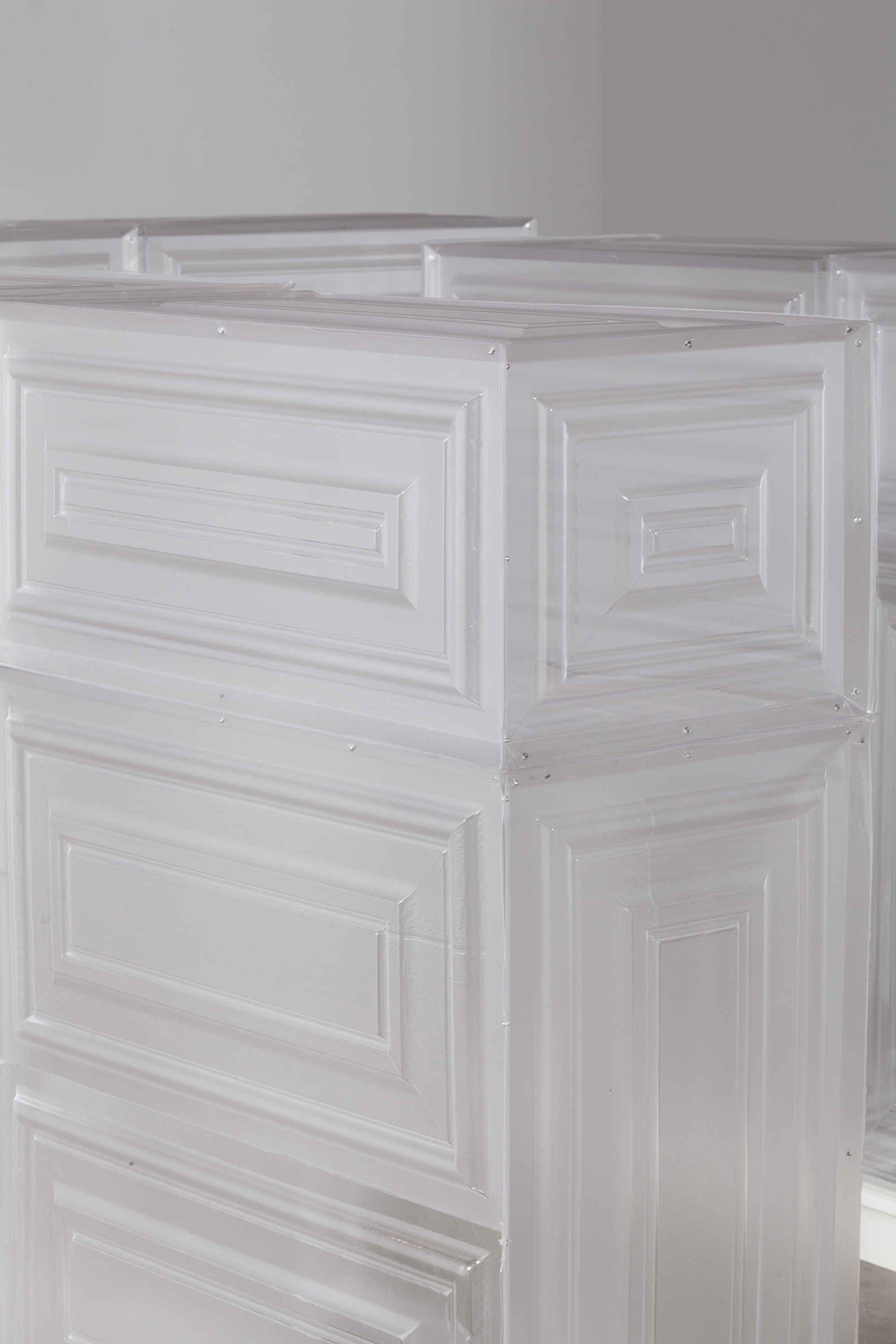
Untitled (Kitchen), 2019.
Thermoformed PETG plastic cabinets, rivets, wooden base.
![]()
Thermoformed PETG plastic cabinets, rivets, wooden base.

Untitled (Kitchen), 2019.
Thermoformed PETG plastic cabinets, rivets, wooden base.
Thermoformed PETG plastic cabinets, rivets, wooden base.
 Untitled (Rug), 2019.
Untitled (Rug), 2019.Plastic IV tubing, copper electrical wire, doggie bag, headphones, shoelace on steel mesh.

Untitled (Rug), 2019.
Plastic IV tubing, copper electrical wire, doggie bag, headphones, shoelace on steel mesh.
Plastic IV tubing, copper electrical wire, doggie bag, headphones, shoelace on steel mesh.

Untitled (Rug), 2019.
Plastic IV tubing, copper electrical wire, doggie bag, headphones, shoelace on steel mesh.
![]() Untitled (Grabber), 2019.
Untitled (Grabber), 2019.
Iron oxide on casted plaster.
Plastic IV tubing, copper electrical wire, doggie bag, headphones, shoelace on steel mesh.
 Untitled (Grabber), 2019.
Untitled (Grabber), 2019. Iron oxide on casted plaster.
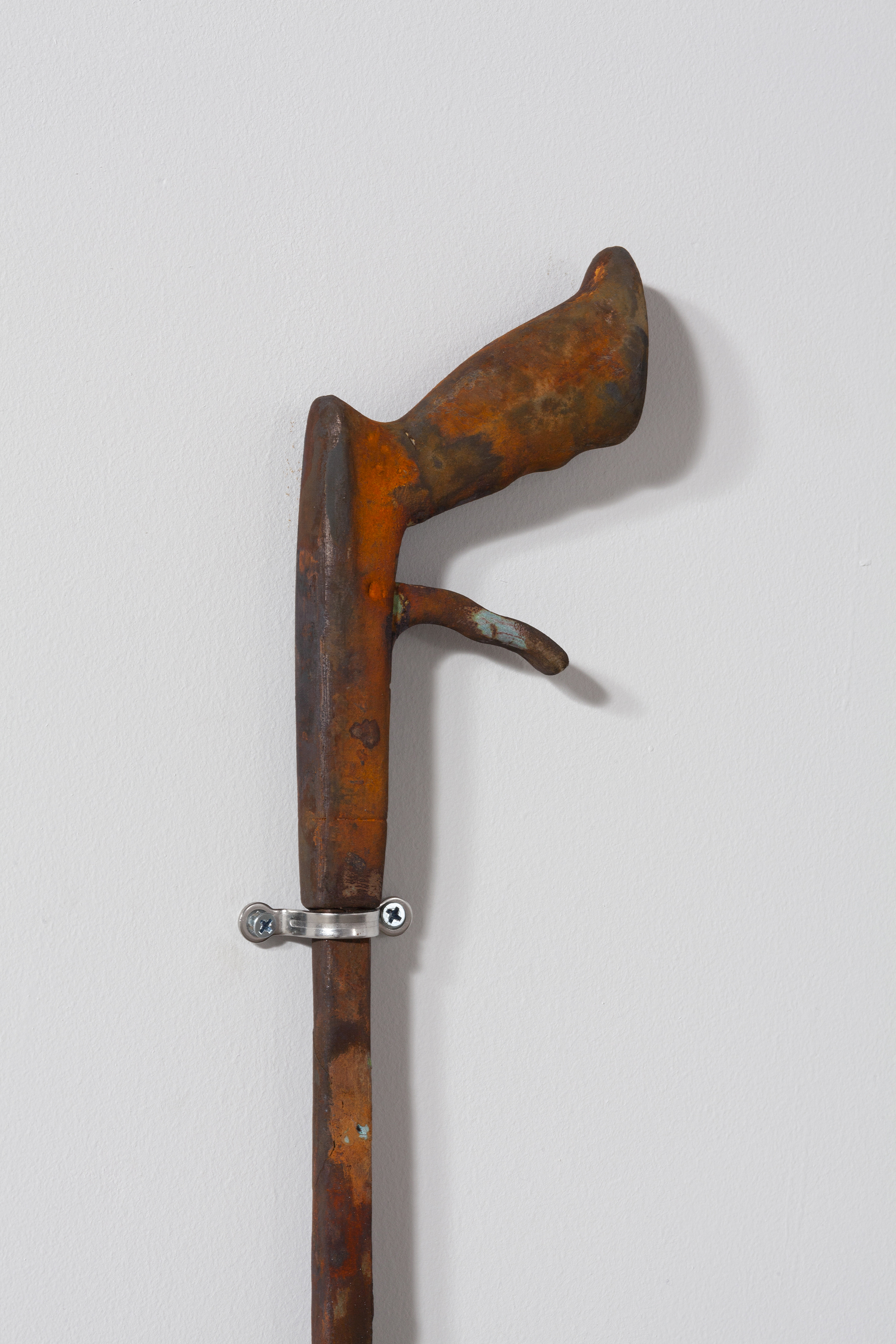 Untitled (Grabber), 2019.
Untitled (Grabber), 2019. Iron oxide on casted plaster.
 Untitled (Grabber), 2019.
Untitled (Grabber), 2019. Iron oxide on casted plaster.

At My Limit, 2019.
3D printed articulated hand, electrical wires, miscellaneous hardware, 20 lb. weight.
3D printed articulated hand, electrical wires, miscellaneous hardware, 20 lb. weight.

At My Limit, 2019.
3D printed articulated hand, electrical wires, miscellaneous hardware, 20 lb. weight.
3D printed articulated hand, electrical wires, miscellaneous hardware, 20 lb. weight.
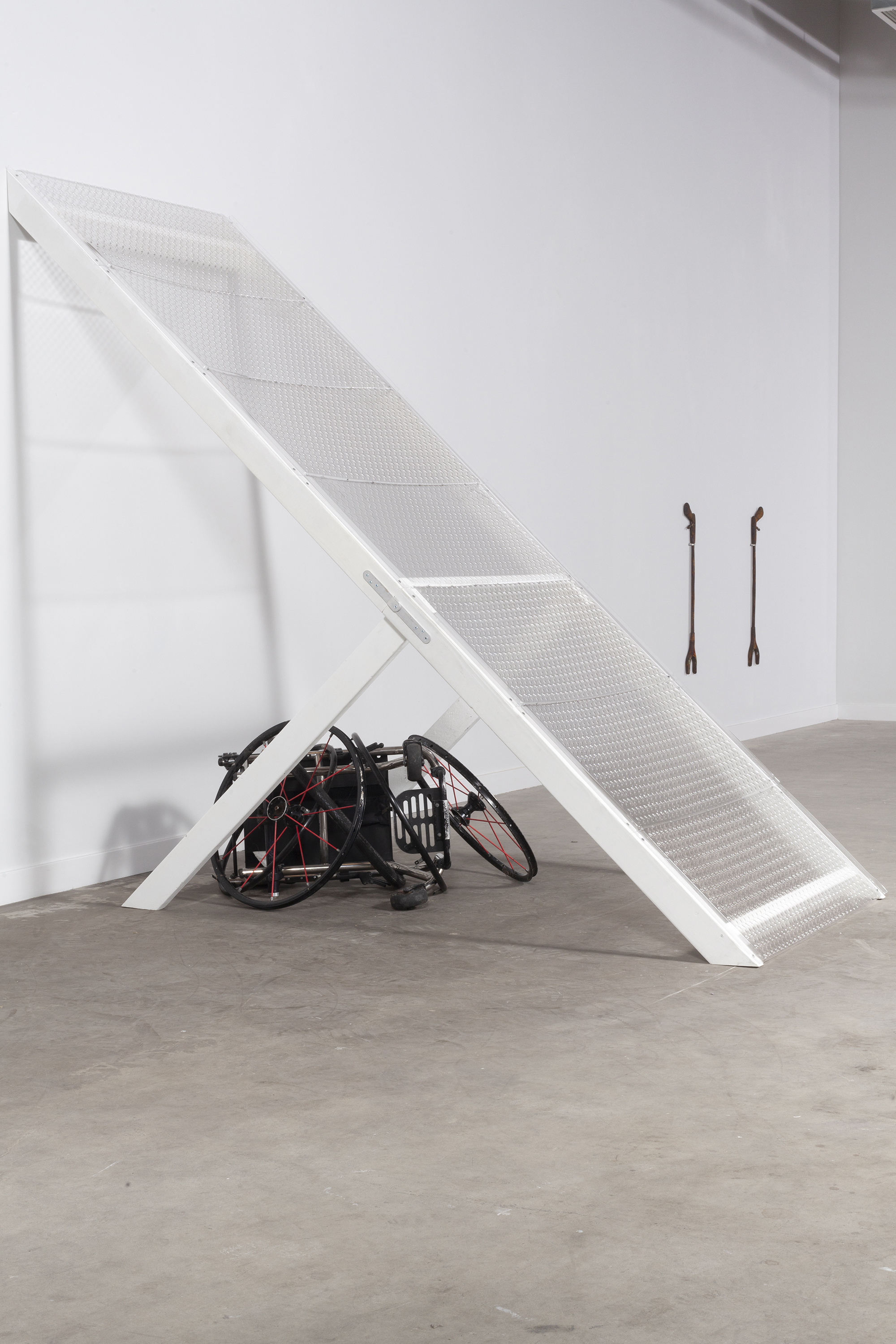 Untitled (Ramp), 2019.
Untitled (Ramp), 2019.Thermoformed PETG plastic, rivets, wood, broken wheelchair.
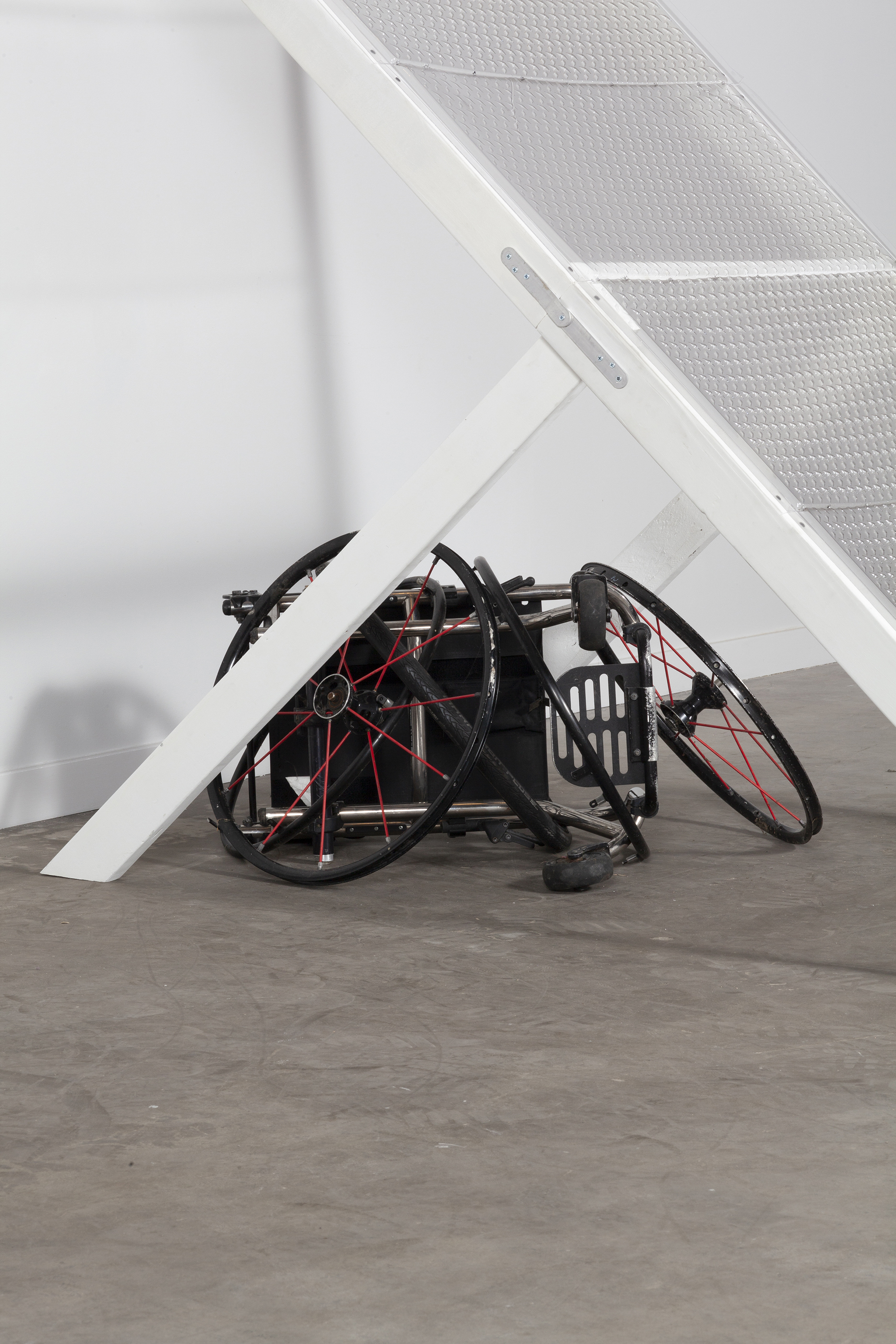
Untitled (Ramp), 2019.
Thermoformed PETG plastic, rivets, wood, broken wheelchair.
Thermoformed PETG plastic, rivets, wood, broken wheelchair.
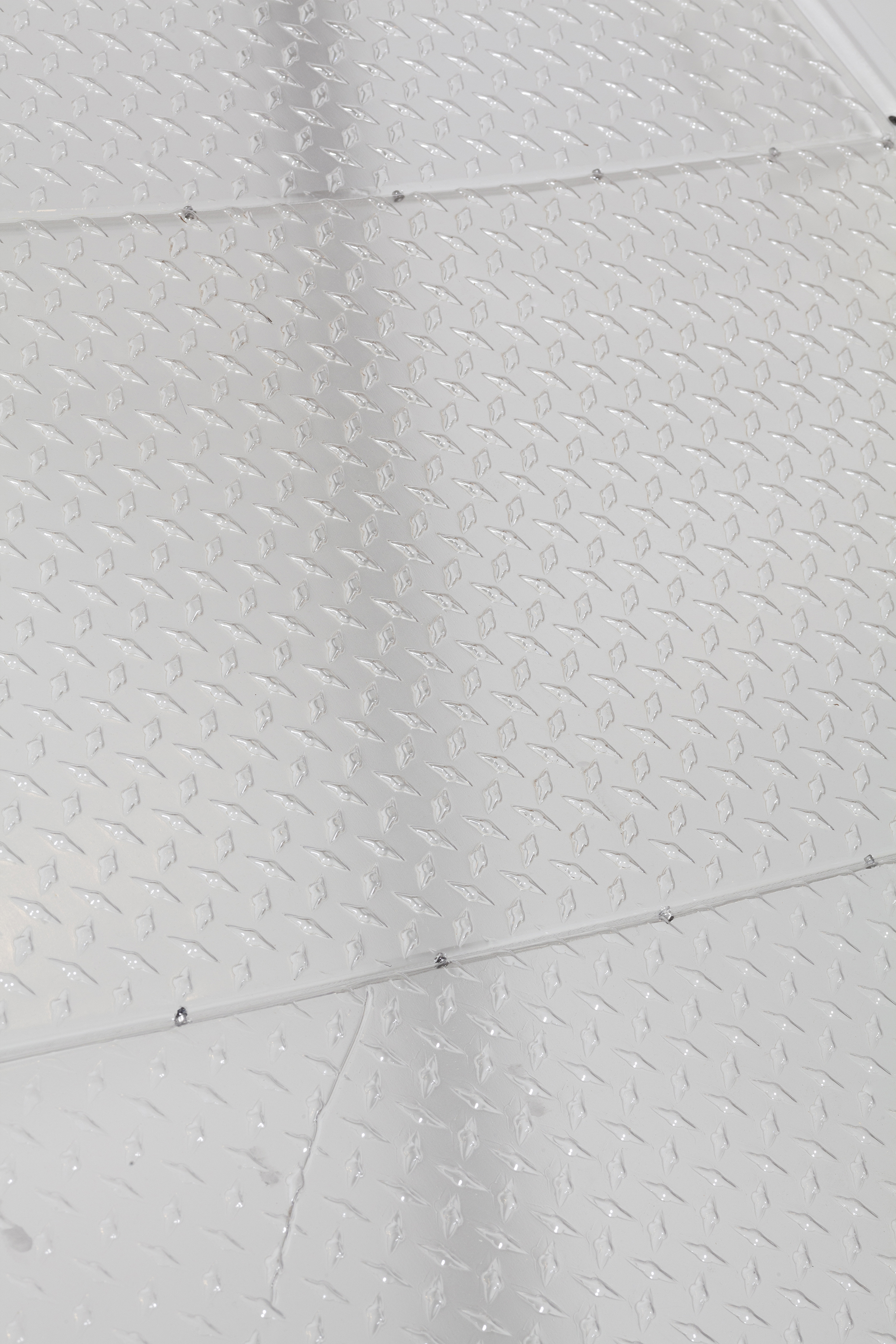
Untitled (Ramp), 2019.
Thermoformed PETG plastic, rivets, wood, broken wheelchair.
Thermoformed PETG plastic, rivets, wood, broken wheelchair.
 Out of Reach, 2019.
Out of Reach, 2019.Wooden closet rod, closet hardware, hanger, nightlight.
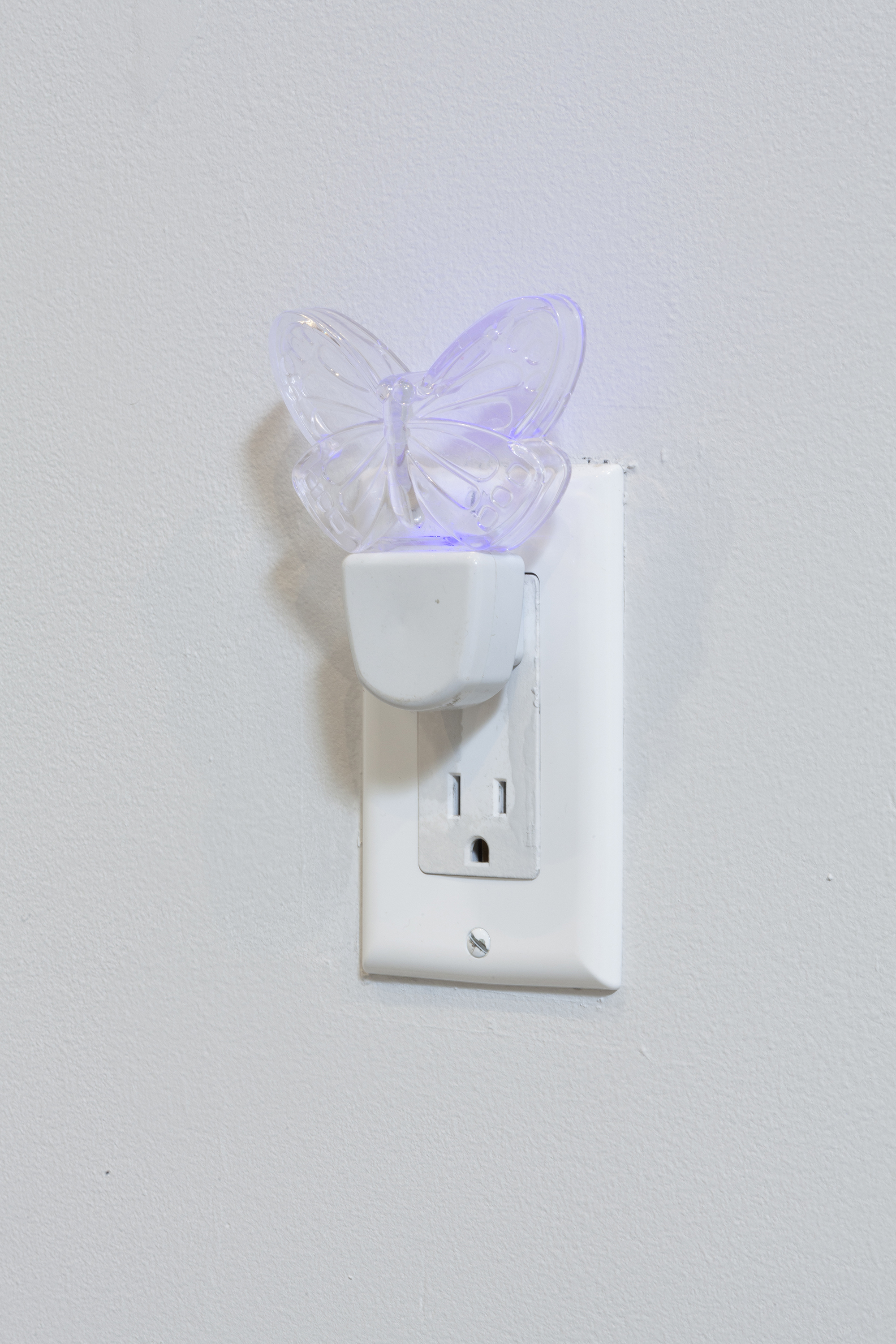
Out of Reach, 2019.
Wooden closet rod, closet hardware, hanger, nightlight.
![]() Hierarchy of Needs, 2019.
Hierarchy of Needs, 2019.
Digital print on paper.
![]() Hierarchy of Needs, 2019.
Hierarchy of Needs, 2019.
Digital print on paper.
Wooden closet rod, closet hardware, hanger, nightlight.
 Hierarchy of Needs, 2019.
Hierarchy of Needs, 2019. Digital print on paper.
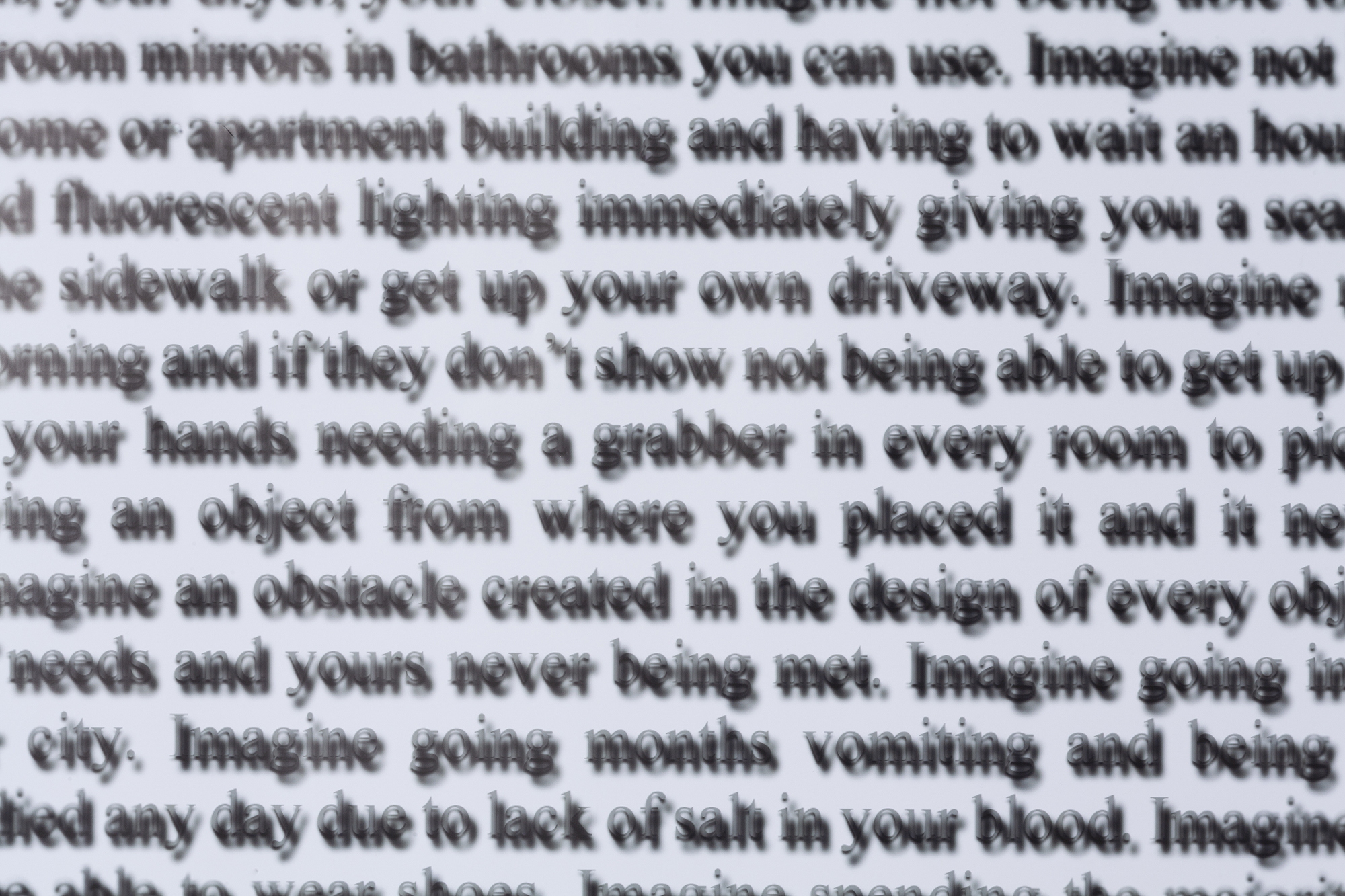 Hierarchy of Needs, 2019.
Hierarchy of Needs, 2019. Digital print on paper.
 Installation view
Installation view

Death by 7865 Paper Cuts, 2019.
Xeroxed medical bills and life-care plan from 2012-2015, 7865 sheets of paper.
Xeroxed medical bills and life-care plan from 2012-2015, 7865 sheets of paper.

Death by 7865 Paper Cuts, 2019.
Xeroxed medical bills and life-care plan from 2012-2015, 7865 sheets of paper.
Xeroxed medical bills and life-care plan from 2012-2015, 7865 sheets of paper.
Emily Barker (b. 1992) is an artist and activist based in Los Angeles, CA. Barker received a BFA from the School of the Art Institute in 2014. Barker participated in their first group show Vitrine in 2011 in Chicago. They have given and hosted many readings at spaces such as Navel, The Standard Hotel, and Karma International. They also co-host the bi-weekly Death Panel podcast with four other artists in New York and a policy professor. This is their first show since becoming disabled.
DOWNLOAD PRESS RELEASE
